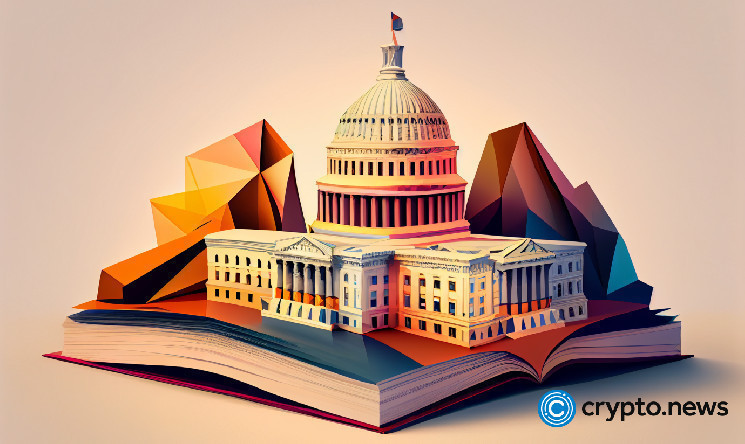Gensler is all-in on president Biden’s massive $2.4 billion funding proposal for the regulator, emphasizing the urgent need to tackle “misconduct” head-on in the wild world of cryptocurrency.
SEC Chairman Gary Gensler’s recent testimony before the House Committee on Appropriations has drawn attention to the need for increased funding in the Fiscal Year (FY) 2024 budget.
The announcement received mixed reactions from Twitter users, with one user calling him “Mr. Corruption,” whereas another called him a “joke.”
Tell them the truth, you are there to help the banks get a 50% stake in crypto, not to provide regulatory clarity or to protect the public. You are Mr Corruption himself. pic.twitter.com/028S6WSQac
— Julian_Williams – Artwork & XRP (@XRPJulian) March 29, 2023
This record-breaking budget allocation demonstrates a steadfast commitment to cleaning up the digital asset space and ensuring a safer environment for all involved.
However, this push for funding also raises questions about the impact of the SEC’s approach to regulation and enforcement in the crypto space and whether this has caused more harm than good for the industry.
The two sides of the crypto regulation
On the one hand, Gensler’s push for increased funding highlights the urgent need to address the “Wild West” nature of the crypto markets, characterized by rampant noncompliance and increased risks for investors.
The additional resources would enable the SEC to investigate misconduct better, accelerate the pace of enforcement investigations, and address risks in crypto markets, cyber and information security, and the resiliency of critical market infrastructure.
However, on the other hand, the SEC’s current stance against the crypto market, as evidenced by its ongoing legal battles with Ripple, Coinbase, and other crypto projects, has sparked controversy and debate.
Critics argue that the SEC’s enforcement actions may have unintentionally stifled innovation and hindered the growth of the crypto industry in the United States.
And from our Chief Legal Officer: https://t.co/Y6T5LtnM7y
— Brian Armstrong (@brian_armstrong) March 22, 2023
The Ripple effect: unintended consequences of SEC actions
The ongoing legal battle between the SEC and Ripple Labs is a prime example of crypto regulation complexities.
In December 2020, the SEC filed a lawsuit against Ripple Labs, alleging that the company had raised over $1.3 billion by selling XRP tokens, which the SEC deemed unregistered securities.
While the case is nearing its end, with all hopes for the SEC to face a deafening defeat, the lawsuit has had far-reaching consequences for Ripple Labs and the broader crypto market.
You might also like: Ripple CEO prepares for SEC lawsuit to conclude in 2023
In response to the SEC’s action, several prominent crypto exchanges delisted XRP, causing its price to plummet and investor confidence to falter.
Moreover, the uncertainty surrounding the regulatory status of cryptocurrencies in the United States has made it difficult for other crypto projects to thrive, potentially stifling innovation and driving talent and capital to other, more crypto-friendly jurisdictions.
Striking the right balance: the need for clarity and flexibility
While it is clear that increased funding for the SEC is necessary to address the challenges posed by the rapidly evolving financial landscape, it is also crucial for the regulatory agency to strike the right balance between enforcement and fostering innovation.
The SEC must provide clear guidance and a flexible regulatory framework that can accommodate the unique characteristics of cryptocurrencies and related technologies without causing unintended harm to the industry.
To achieve this balance, the SEC should engage in an open dialogue with industry stakeholders, including crypto projects, investors, and legal experts, to develop a comprehensive and adaptable regulatory approach.
This will ensure that the SEC can protect the American investing public and maintain the integrity of the nation’s capital markets while fostering the growth and innovation the crypto industry offers.
Read more: MASK token skyrockets to a 52-week high
